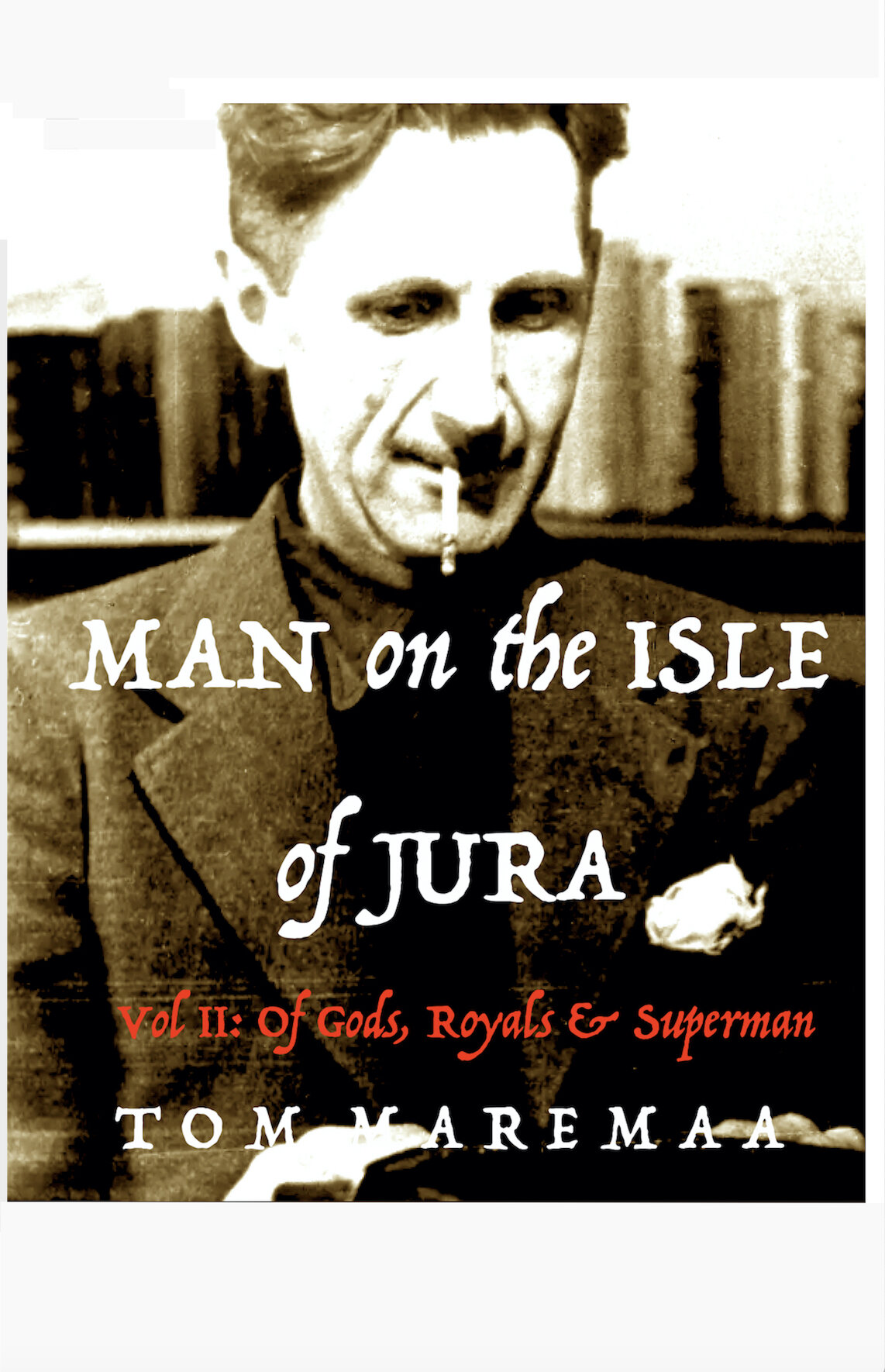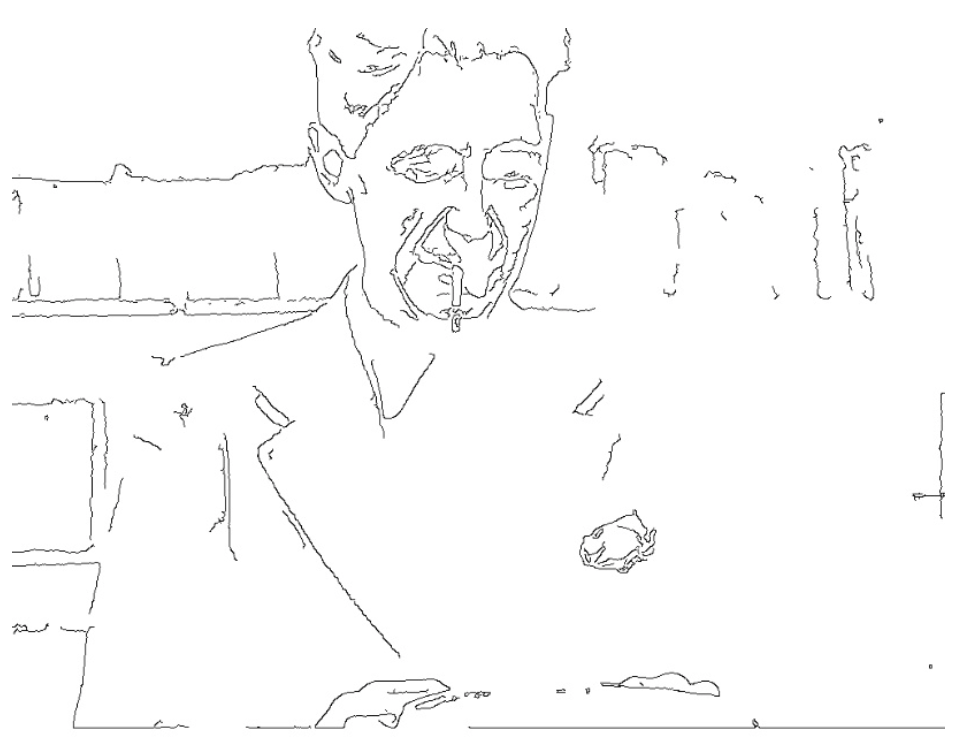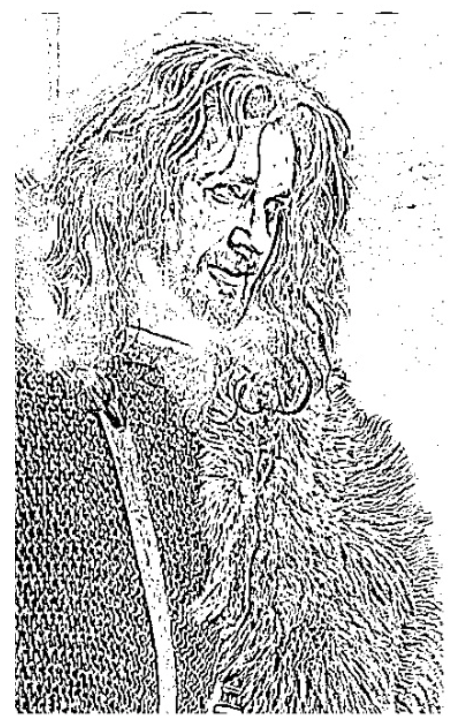Welcome to the sequel to Of Gods, Royals & Superman!
Naturally enough, the story picks up where the first volume left off: Christopher Reed, our hero of Superman strength and resolve, has suffered injuries but survived the effects of a devastating earthquake which caused his vehicle to fall off a cliff on the California coast and killed his wife and daughter. The clock reads: 20:37 when all this happens.
But things are not what they seem, are they? Time and space shift, as other dimensions appear, and we now find Reed falling from the sky into the sea off the coast of the Isle of Jura across the gulf from Scotland. The present is no longer there.
1948 and beyond to the Year 2037
The year is 1948, much to Reed’s surprise. His mission, as he soon discovers, has become to find the whereabouts of a British writer of great distinction living in a farmhouse on the northern tip of the isle.
The writer is in dire straits, suffering the pain and terminal effects of tuberculosis while working feverishly away on his masterpiece. Who is he? And why is it essential that his work survive for future generations?
Dark forces, we soon discover, are at play—forces out to destroy all traces of the man’s life and his work. The stakes are higher than we can possibly imagine because, as the man on the isle has written: Those who own the past own the future, and those who own the present own the past.
Will the man and his past be erased from history?
Not so fast. The story then jumps forward to the next century, to the year 2037. The world has changed, yet Reed’s savior on the isle is alive and well and working secretly to subvert the dominant paradigm of authoritarian rule and ensure the world Orwell once envisioned does not come to pass.
Man on the Isle of Jura is a riveting, provocative story of magical realism that takes us on a journey that straddles the worlds of past, present, and future. As readers, we come away from the narrative having touched and seen worlds we’ve never felt or imagined before.
The Monster Dahlgren on the Isle Who has in for Orwell
An excerpt from the noveL: Orwell’s House
The house was bleached white with three dormer windows, sitting about a half mile down a hillside toward the sea, and as it happened, toward the Corryvreckan vortex from which Christopher Reed had emerged. Eric Blair, as he was known to the locals, loved the harshness of the isle, his place in the sun, which he tried to beautify by planting fruit trees, by cultivating a garden, and building a coop for his unruly chickens whose eggs he relished at breakfast. Outside the house nearby was a small truck, a motorbike which required constant repair and a fishing boat he’d bought from a local so he could go out to the water, cast his rod and catch a few large cod or haddock from the icy currents of the Gulf miles across from the Scottish mainland. On numerous walks and outings, he entertained visits by a few loyal and devoted friends from London and elsewhere, only a select few, despite his embrace of socialism and equal rights for all to counter the bitter taste of loneliness he felt when working feverishly by himself on the Book. His experiences of life abroad, particularly during the Spanish Civil War and the pain of his wounds from that time, were always lively topics of interests for those who visited. He had labored hard by all accounts since his first arrival on the isle in nineteen forty-five to make this place, this island in the sky his home forever, at least until the day he died.
Hardness took the form of austerity: the Isle of Jura had one General store, one telephone, and one physician in the village of Craighouse, which was almost twenty-five miles away from Barnhill. Blair got mail only three times a week, delivered each Thursday to his residence. Three years after the war, food and fuel rationing were still the order of the day. He had to be careful how much his truck and motorbike used, and plan his trips for food accordingly. A store in Craighouse maintained the ration books, and locals had to make their requests known to the storekeeper by mail. None of it bothered the man who wrote under the pen name of George Orwell. He had been down and out in almost every city he’d lived in as a young journalist and writer.






